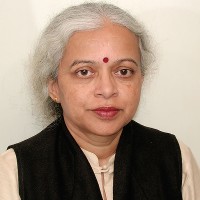23 November 2019
Interview: Defining robust pathways for a sustainable future
Q You have extensive experience on research in the areas of energy, environment, and climate change policies, and have also been highly engaged in climate and sustainable development issues through various boards and committees. What drew you to this field, and what have your career highlights been to date?
A When I started in this field over three decades ago, I had no idea that I would stick to this area of research for so long! At the time, the primary concern in India was energy security issues. It was thrilling to be among the first to develop an energy-economy model for the country, learning from the best globally, and to be able to inform policymaking in this area. Extending the model and analysis to cover environmental and climate dimensions was even more engaging, as it required me to understand the technical and scientific aspects of each system for proper representation. The tremendous and unending learning opportunities, the independence of research, the freedom of expression, were all attributes of my work that held me captive and motivated me to accept new challenges. Over the years, caring for the planet and its life has ingrained itself inextricably in my being.
Q What do you anticipate will be the most challenging aspects of your role as the first IIASA Deputy Director General for Science?
A The world is being asked to transform completely and flawlessly towards a socioeconomic system that would lead to zero carbon emissions almost overnight. IIASA has a clear head start in terms of tools, methods, and models to make the implications of such systemic transformations transparent, both under alternative scenarios, and on the multiple dimensions of sustainability. Positioning IIASA to conscientiously contribute to this effort as widely and deeply as possible will be the greatest challenge of this role at this point in time.
Q What do you see as the major obstacles that will have to be overcome to set the world on track to achieving a more sustainable and equitable future?
A To achieve the impossible in the given time, the countries and communities of the world would need to start trusting each other and cooperating in an unprecedented manner. We need to recognize that we are facing an existential challenge, the solution to which would be stymied by narrow, short-term economic considerations. Therefore, our challenge would be to create the mechanisms by which we are able to enhance returns to countries and other actors over the long term, for responsible action in the short term.
Q Could you share some of your goals for the institute during your term as Deputy Director General for Science?
A My goal for IIASA would be to establish it as the go-to place for helping define robust, systemic sustainability pathways for a range of actors. It should be the destination of choice for change-makers to acquire the tools, methods, and analytical skills needed to amplify the impact IIASA has on sustainability transformations.
By Ansa Heyl
More information


